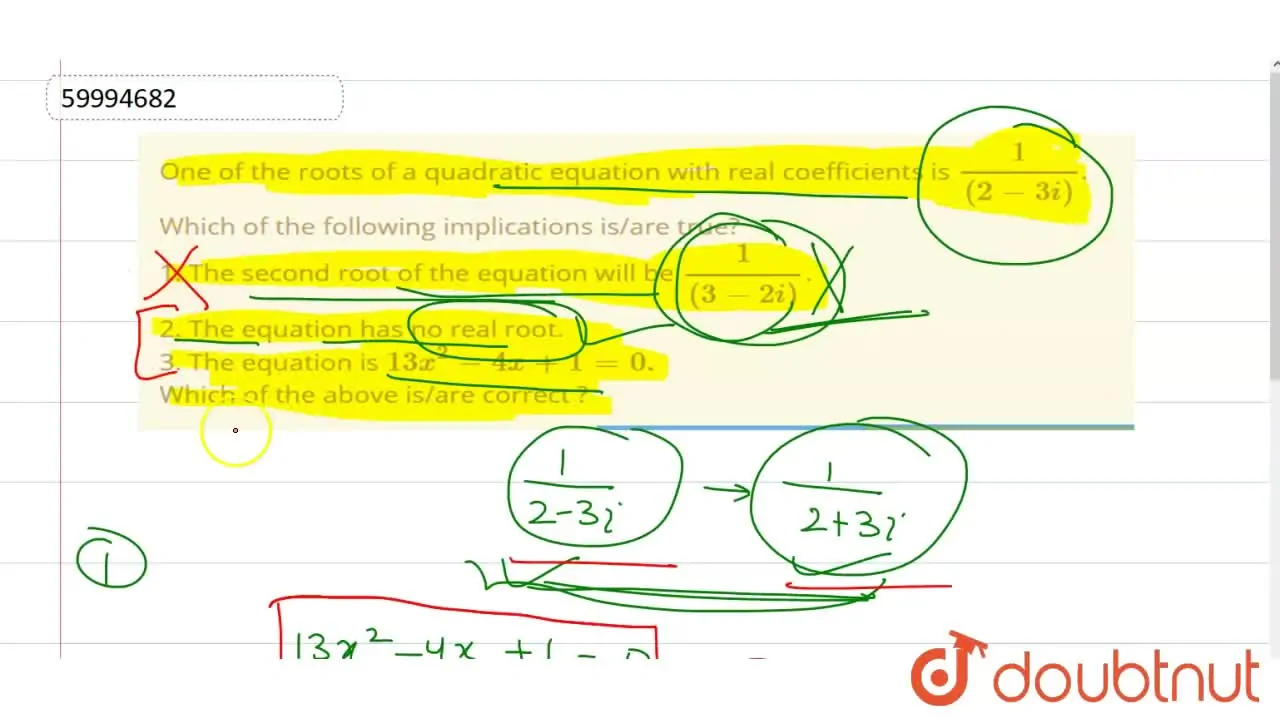One of the roots of a quadratic equation with real coefficients is 1(2−3i). Which of the following implications is/are true?
1. The second root of the equation will be 1(3−2i).
2. The equation has no real root.
3. The equation is 13x2−4x+1=0.
Which of the above is/are correct ?
A
1 and 2 only
B
3 only
C
2 and 3 only
D
1,2 and 3
Video Solution
Text Solution
The correct Answer is:C
If one root is 12−3ii.e,2+3i4+9=213+313i, then another
root will be 213−3i13i.e,12+3i. [Since cmplex roots are conjugate]
So, statement (1) is not correct.
Since, quadratic equation has two roots thus this equation has only imaginary roots. Statement (2) is correct.
∴ The equation is
x2−(Sum of roots)x+(Product of roots)=0
Sum of roots =12−3i+12+3i=413
Product of roots =12−3i×12+3i=113
⇒ x2−413x+113=0⇒13x2−4x+1=0
⇒ So, statement 3 is correct.
Thus, (2) and (3) statements are correct.
|
Updated on:21/07/2023
Related Playlists
Similar Questions
The quadratic equation with real coefficients has one root 2i s
View SolutionForm a quadratic equation with real coefficients whose one root is 3−2t
View SolutionFind the quadratic equation with real coefficients which has (-5-i) as a root
View SolutionIf the roots of the quadratic equation x2+2x+k=0 are real, then
View SolutionThe number of real roots of the equation |x|2−3|x|+2=0, is
View SolutionThe number of real roots of the quadratic equation 3x2+4=0 is
View SolutionThe number of real root of the equation ex−1+x−2=0, is
View SolutionIf the equation x2−kx+1=0 has no real roots then
View SolutionThe real roots of the equation x2/3+x1/3−2=0 are
View SolutionThe number of real roots of the equation |x|2−3|x|+2=0, is
View Solution


